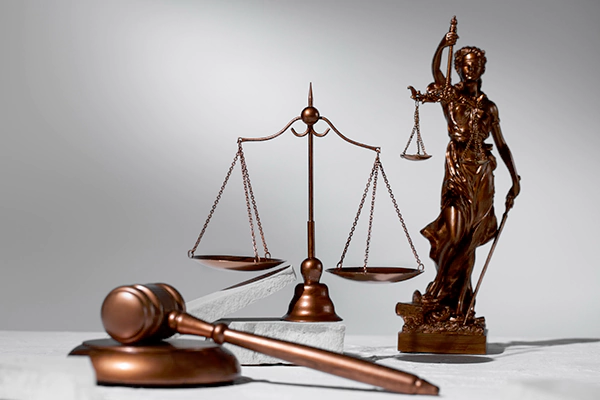The Impact of Bankruptcy on Your Financial Future: Legal Insights
Bankruptcy is often perceived as a last resort for individuals and businesses struggling with overwhelming debt. While it can provide a fresh start, the impact of bankruptcy on your financial future is significant and long-lasting. Understanding these consequences is crucial for making informed decisions. Property Legal Advisors in Chennai often emphasize the importance of considering all legal options before proceeding with bankruptcy. In this article, we will explore the impact of bankruptcy on your financial future, providing valuable legal insights to guide you through this challenging process.
Understanding Bankruptcy: A Double-Edged Sword
Bankruptcy offers relief from debt by either eliminating it or restructuring it under the protection of a bankruptcy court. This relief, however, comes with significant consequences. The impact of bankruptcy extends beyond the immediate resolution of debt; it influences your financial stability, creditworthiness, and even your professional opportunities for years to come.
1. Immediate Financial Relief
The most immediate benefit of bankruptcy is the automatic stay, which halts all collection activities, including lawsuits, wage garnishments, and creditor harassment. This legal provision offers temporary relief and allows individuals or businesses to regain control of their finances. However, the relief is often short-lived, as the process of bankruptcy itself can be costly, involving legal fees, court costs, and mandatory financial counseling.
2. Credit Score and Future Borrowing
One of the most significant impacts of bankruptcy is the detrimental effect on your credit score. A bankruptcy filing can lower your credit score by 200 points or more, and it will remain on your credit report for 7 to 10 years, depending on the type of bankruptcy filed. This makes future borrowing difficult and expensive. Lenders may see you as a high-risk borrower, leading to higher interest rates or outright denial of credit. Additionally, obtaining a mortgage, car loan, or even a credit card can become challenging, further complicating your financial recovery.
3. Asset Liquidation and Exemptions
In a Chapter 7 bankruptcy, non-exempt assets may be liquidated to repay creditors. While some property, such as your primary residence or essential personal belongings, may be exempt, you could still lose valuable assets. This loss can be particularly devastating if it includes investments or property that was part of your long-term financial strategy. For businesses, liquidation can mean the end of operations and the sale of assets at a fraction of their value, further impacting financial stability.
4. Employment and Professional Consequences
Bankruptcy can also affect your professional life. Certain employers, particularly in finance or positions requiring security clearance, may view bankruptcy as a red flag. It could hinder job prospects or even lead to job loss in some cases. Additionally, professionals in certain fields, such as law or accounting, may face disciplinary action or lose their license to practice, depending on the circumstances surrounding their bankruptcy.
Long-Term Financial Impact
The long-term impact of bankruptcy on your financial future cannot be overstated. Beyond the immediate effects on credit and employment, bankruptcy can alter your financial trajectory for years to come.
1. Difficulty in Rebuilding Credit
Rebuilding credit after bankruptcy is a slow and challenging process. While some creditors may offer secured credit cards or loans with high-interest rates, responsible use of these products is crucial to gradually improving your credit score. However, the stigma of bankruptcy can linger, making it difficult to access favorable terms even after years of diligent financial management.
2. Limited Access to Financial Products
Post-bankruptcy, your access to financial products will be limited. Many lenders and financial institutions may require higher collateral or co-signers for loans. Insurance premiums might increase, and landlords could be hesitant to rent to someone with a bankruptcy on their record. This restricted access can limit your ability to rebuild your financial life and achieve long-term goals such as homeownership or business investment.
3. Impact on Personal Relationships
Bankruptcy can also strain personal relationships. The financial stress leading to bankruptcy, coupled with the aftermath, can lead to tension among family members, friends, and business partners. The social stigma associated with bankruptcy might also affect your social standing, making it difficult to regain trust and support from your community.
Conclusion: Weighing the Impact of Bankruptcy
The decision to file for bankruptcy should never be taken lightly. While it offers a way out of overwhelming debt, the impact of bankruptcy on your financial future is profound and far-reaching. Legal advice from experts, such as Real estate Legal Advisors Chennai, is essential to navigate this complex process and understand the full scope of its consequences.
Carefully weighing the immediate relief against the long-term consequences is crucial. Exploring alternatives to bankruptcy, such as debt consolidation, negotiation, or financial counseling, might offer a less damaging solution. If bankruptcy is the only viable option, proactive steps to rebuild credit, manage finances, and seek professional guidance can help mitigate its impact and set the stage for a more stable financial future.






